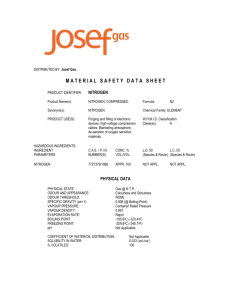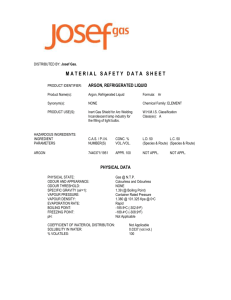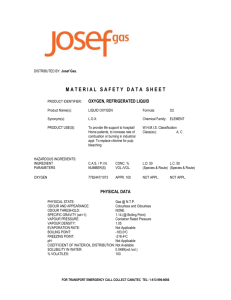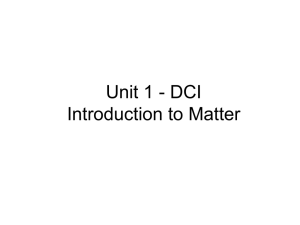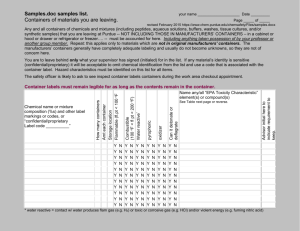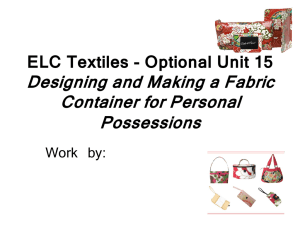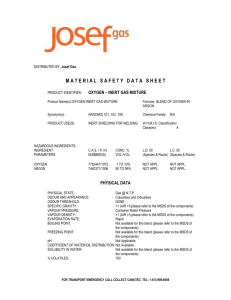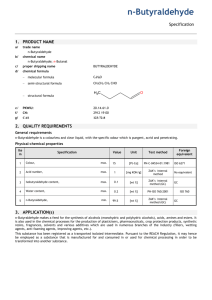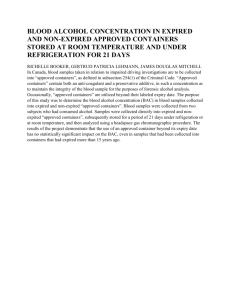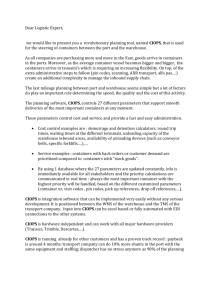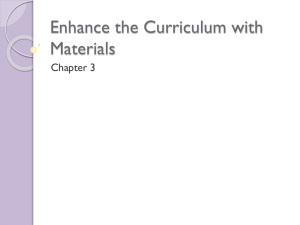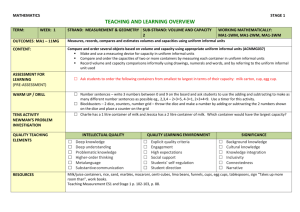Nitrogen, Refrigerated Liquid
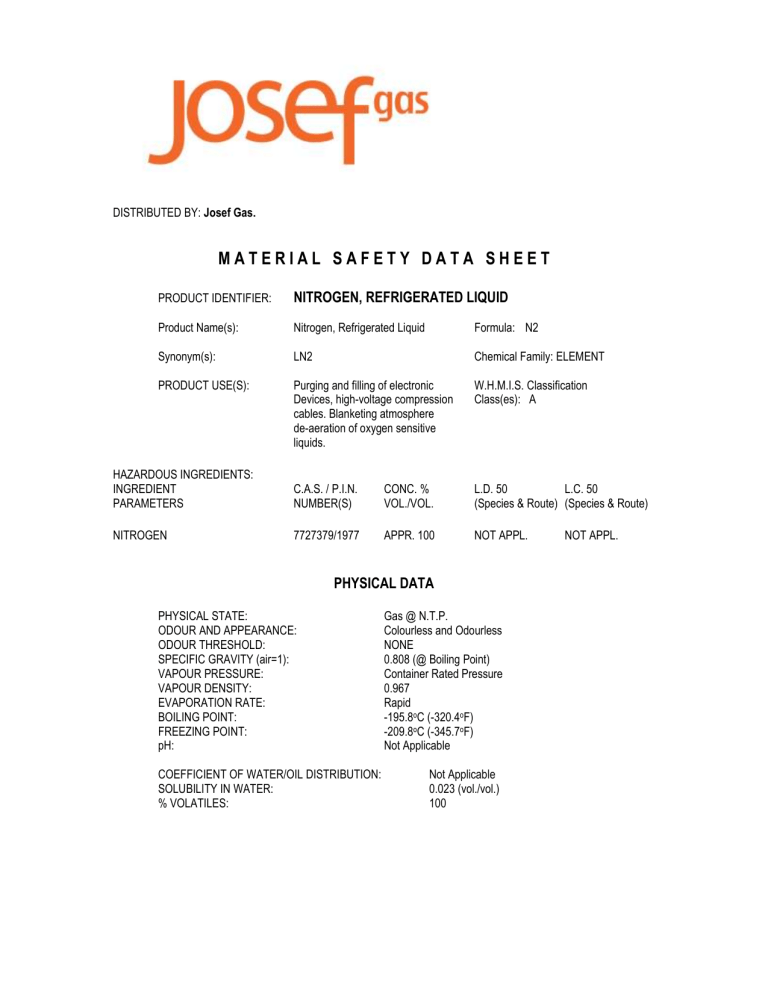
DISTRIBUTED BY: Josef Gas.
M A T E R I A L S A F E T Y D A T A S H E E T
PRODUCT IDENTIFIER:
NITROGEN, REFRIGERATED LIQUID
Product Name(s): Nitrogen, Refrigerated Liquid Formula: N2
Synonym(s): LN2 Chemical Family: ELEMENT
PRODUCT USE(S): Purging and filling of electronic W.H.M.I.S. Classification
Devices, high-voltage compression Class(es): A cables. Blanketing atmosphere de-aeration of oxygen sensitive liquids.
HAZARDOUS INGREDIENTS:
INGREDIENT
PARAMETERS
NITROGEN
C.A.S. / P.I.N.
NUMBER(S)
CONC. %
VOL./VOL.
7727379/1977 APPR. 100
L.D. 50 L.C. 50
(Species & Route) (Species & Route)
NOT APPL. NOT APPL.
PHYSICAL STATE:
ODOUR AND APPEARANCE:
ODOUR THRESHOLD:
SPECIFIC GRAVITY (air=1):
VAPOUR PRESSURE:
VAPOUR DENSITY:
EVAPORATION RATE:
BOILING POINT:
FREEZING POINT: pH:
PHYSICAL DATA
Gas @ N.T.P.
Colourless and Odourless
NONE
0.808 (@ Boiling Point)
Container Rated Pressure
0.967
Rapid
-195.8
o C (-320.4
o F)
-209.8
o C (-345.7
o F)
Not Applicable
COEFFICIENT OF WATER/OIL DISTRIBUTION:
SOLUBILITY IN WATER:
% VOLATILES:
Not Applicable
0.023 (vol./vol.)
100
FOR TRANSPORT EMERGENCY CALL COLLECT CANUTEC TEL: 1-613-996-6666
UYI 110-2
FIRE OR EXPLOSION HAZARDS
CONDITIONS OF FLAMMABILITY:
MEANS OF EXTINCTION:
FLASH POINT: NONE
UPPER FLAMMABLE LIMIT: NONE
AUTOIGNITION TEMPERATURE:
HAZARDOUS COMBUSTION PRODUCTS:
SENSITIVITY TO MECHANICAL IMPACT:
SENSITIVITY TO STATIC DISCHARGE:
SPECIAL PROCEDURES:
NONE. Nitrogen will not support or sustain combustion of other materials.
Cool containers with water spray. Extinguish surrounding fire(s).
LOWER FLAMMABLE LIMIT: NONE
NONE
NONE
NONE
NONE
Evacuate areas where a leak or a spill is present. Extinguish surrounding fires. DO NOT use water on the source of the leak as to avoid ice formation that may obstruct the operation of the Safety
Relief Device.
REACTIVITY DATA
CONDITIONS OF CHEMICAL UNSTABILITY: NONE
INCOMPATIBILITY: Cool liquid may embrittle some materials
CONDITIONS OF REACTIVITY: NONE
HAZARDOUS DECOMPOSITION PRODUCTS: NONE
TOXICOLOGICAL PROPERTIES
ROUTE OF ENTRY
SKIN (CONTACT):
SKIN (ABSORPTION):
EYE CONTACT:
INHALATION:
YES
NO
YES
YES
INGESTION: YES
EFFECTS OF ACUTE EXPOSURE:
May displace air in enclosed spaces. If oxygen concentration falls below 18% symptoms of asphyxia may develop.
Symptoms may include: nausea, dizziness, unconsciousness, convulsions, coma and death.
EFFECTS OF CHRONIC EXPOSURE:
EXPOSURE LIMITS:
IRRITANCY:
SENSITIZATION:
CARCINOGENICITY:
REPRODUCTIVE TOXICITY:
TERATOGENICITY:
MUTAGENICITY:
TOXIC SYNERGISTIC PRODUCTS:
NONE KNOWN
Maintain ambient oxygen concentration above 18%
NONE
NONE
NONE
NONE
NONE
NONE
NONE
UYI 110-3
FIRST AID
EYE:
INGESTION:
INHALATION:
For frostbite rinse with warm water for 15 minutes. Obtain medical attention immediately.
Maintain breathing. Obtain medical attention immediately.
Move victim to fresh air if possible. Administer C.P.R. if breathing has stopped. If breathing is difficult give oxygen. Obtain medical attention.
For frostbite, allow effected body parts to thaw. Obtain medical attention. SKIN:
PREVENTIVE MEASURES
PERSONAL PROTECTION
EYE:
HAND:
FEET:
CLOTHING:
Full faceshield to prevent contact with cold liquid
Insulated Work gloves
Safety footwear where applicable.
Long sleeves, trousers recommended.
RESPIRATOR: Not applicable where oxygen concentration is kept above 18%.
ENGINEERING CONTROLS: Provide ventilation. Keep oil, grease, and combustible materials away.
SPILL AND LEAK PROCEDURE:
Leave danger area. Try to stop the leak at source if without risk. Gas will dissipate depending on the site/area ventilation. Verify oxygen concentration prior to re-entry.
WASTE DISPOSAL:
No wastes may be generated other than empty containers. Return empty containers as the case may be. Disposal of waste containers must be done in accordance with Federal, Provincial and Municipal regulations.
HANDLING PROCEDURES & EQUIPMENT:
Use only in well ventilated areas. Use only with regulating equipment designed for Nitrogen service and source pressure. Use appropriate carts for moving containers.
Secure container when not in use. Close the container valve when NOT in use, or when empty.
STORAGE REQUIREMENTS:
Store in well ventilated areas. Keep containers upright. Protect containers from physical damage. Segregate full and empty containers. Replace cap on container, if applicable.
SPECIAL SHIPPING INFORMATION:
Transport upright in well-ventilated vehicle. Do not transport in trunk of enclosed vehicle. Commercial quantities
(cylinders) may NOT be transported in passenger compartments.
T.D.G. SHIPPING NAME: Nitrogen, Refrigerated Liquid T.D.G. CLASSIFICATION CLASS(ES):
T.D.G. P.I.N. / U.N. : 1977
PREPARED BY:
TEL:
EFFECTIVE DATE:
Josef Gas.
(416) 658-1212
August 2014
2.2
